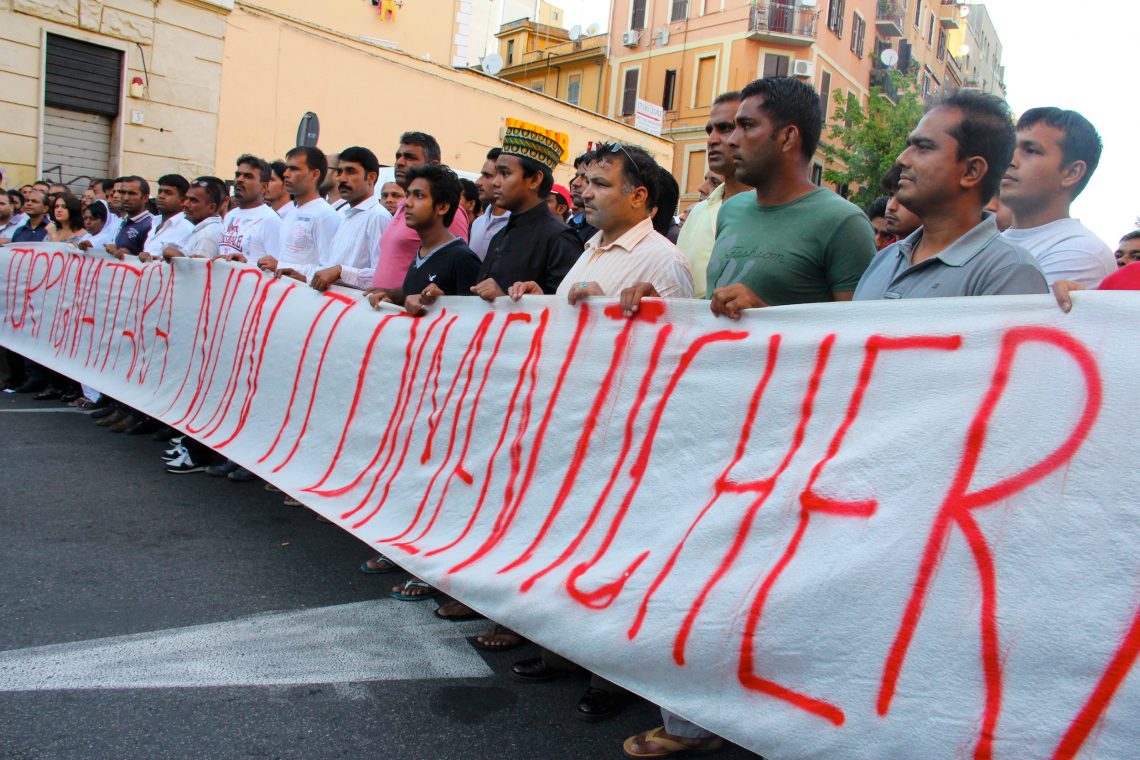
https://www.flickr.com/photos/antonellomangano/15518142668/in/photostream/
Rome. 18th September 2014. In the neighbourhood of Torpignattara, Daniel, an underage boy, beats to death Muhammad Shahzad Khan, a Pakistani citizen, incited by his father, who meanwhile intimates him from the window to massacre him. The murder takes place within minutes in front of some neighbours. When the police arrive, Daniel admits to punching the man in the face with a fist. The boy is arrested on manslaughter charges and transferred to juvenile detention. Carabinieri ruled out racist motive. The neighbourhood splits in two: Muhammad’s supporters on one side, Daniel’s supporters on the other. In October 2014, the Public Prosecutor’s Office of Rome enrolled Daniel’s father in the register of suspects, and then arrested him on charges of conspiracy to commit voluntary manslaughter, aggravated by having induced his minor son to commit the crime. From this moment on, two trials go ahead: one against the material author, Daniel, the other one against the father, who, according to the accusation, contributes to the murder. In May 2018, the final sentence comes. The contribution focuses, beyond the judicial case, on the emphasizing of some elements that have contributed to confirm the stigmatization and criminalization of migrants, as well as the rhetoric of fear, and at the same time that have helped to draw a distorted and mystifying picture of the Roman neighbourhood in which the murder took place.


